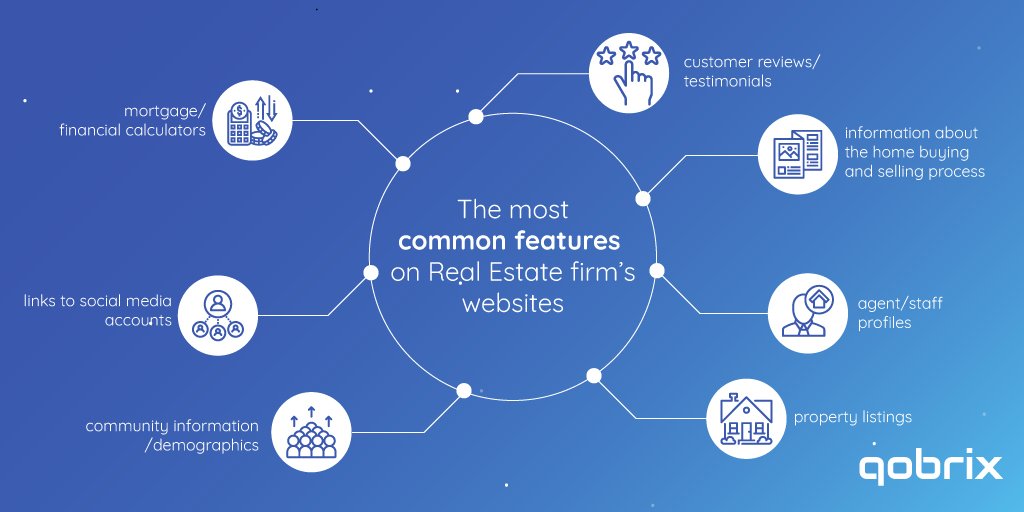Starting with the rising mortgage rates and environmental changes and finishing with the technological progress, real estate brokers are facing numerous challenges each day. As uncovered by the NAR 2019 Profile of Real Estate Firms most brokerages are trying to take a positive approach towards the future of the market, however, they also realise its growing competitiveness.
44% of firms expect competition to increase in the next year from virtual firms and 43% from non-traditional market participants.
With the expansion of the non-traditional real estate business market and with more and more new home buyers opting to go online in search of their potential investments, the role of traditional brick and mortar firms has been significantly limited. Even large franchise firms are struggling to keep up with listing services like Zillow. This is due to a number of factors:
A new generation of home buyers
The first factor is the new generation of home buyers. In 2017, 56% of homebuyers 36 years old and younger found their homes on the internet and 50% of buyers between the age of 37 and 51 found their homes online. Only buyers over the age of 51 years old sought out an agent first.
Millennials tend to seek an actual agent at a much later stage of the home buying process and focus mainly on online resources.
Even though, as the NAR report discovered, 58% of real estate firms were concerned with millenials’ ability to buy a home, in 2018, 37% of new home buyers were 37 years and younger.
This means that Real estate brokerages have to reinvent their whole marketing approach to target this audience. They need to invest in social media strategies that are crucial for finding referrals and bringing in leads from this generation. Sadly, a lot of firms still don’t understand the need to focus on these new acquisition channels.
Only 20% of firms had social media guidelines for professional social media accounts, while 32% had guidelines for professional and personal social media accounts in 2018.
Without the implementation of new communications techniques via social networks, Real Estate companies are essentially closing the door to endless new lead opportunities and are falling behind their competition in the face of brokerages who are taking a more modern approach.
Even rebuilding the company website to create a stronger online presence could make a difference. By providing information on the local neighbourhoods and areas, news and events, as well as local businesses, brokerages can up their game against IDX websites, that usually provide only property listings.
By updating this information regularly and making sure that the information is relevant, they will allow search engines to trust their website and start rating it higher, bringing in a bigger chance for the company to be discovered organically.

Technology is challenging the Real estate industry
Another big factor that is challenging the Real estate industry is technology. Keeping up with technology was among the biggest challenges cited for firms in the next two years. The reason for this, is that Real Estate companies struggle to keep up with the tech revolution and to implement new software accordingly.
While the market requires brokers to be tech-savvy the reality is that they are far from that. Studies proved that 72% of agents still use manual data entry to manage their customer relationships, rather than opt for a CRM tool to automate this process.
This means that instead of saving time and money to focus more on the strategic side of the business, agents are still wasting time on daily tasks that can be completed in mere seconds with the help of the correct technology.
By simply investing in a CRM solution tailored to their business needs, Real estate brokerages can improve their onboarding and raise their operational efficiency to new heights. They can better their marketing campaigns with more precise targeting and nurture their leads more thoroughly. An article in Forbes even pointed out that CRMs help increase sales by up to 29% and improve productivity by up to 34%.
And even though the use of specific software was encouraged by Real estate firms in the past year, the most common software that was provided was comparative market analyses, multiple listing services, e-signatures, and electronic contracts/forms.
These solutions cover only a small amount of functionality and in no way are the limit of technological opportunities for the industry today.
A new generation of Agents
The third real estate challenge is a repercussion of the above. Because the target audience’s perspective is shifting and newer tech tools are entering the market, firms are actively looking for younger agents, who would have a hold on all the trends.
42% of firms reported they were actively recruiting sales agents in 2018.
However, to attract millennials to join their business, Real Estate brokers need to understand what this generation of agents is looking for. According to various research, millennials are more open to jobs that offer flexible work hours and don’t require a constant presence at the office. They take general guidance well but don’t like being micro-managed. Their overall approach to work is more lenient than the older generations.
Younger agents prefer companies that have a strong corporate culture and an enjoyable and fun environment. This is why firms need to accommodate these preferences if they want to bring in a younger workforce.
If you are interested in learning more, check also our article on the Top 5 challenges facing a Real Estate business today and what the impact of Covid-19 is on real estate businesses.




